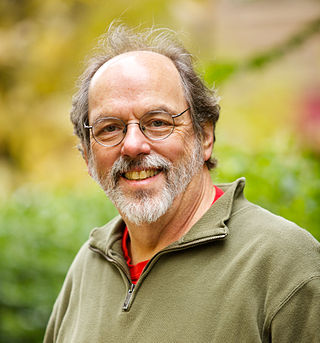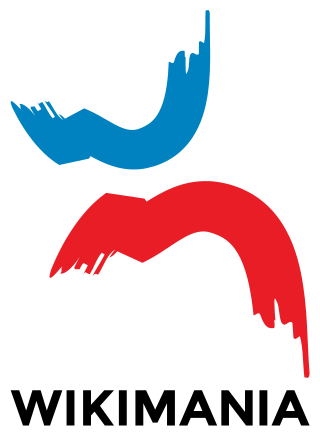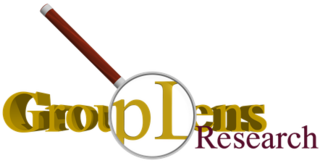
Howard G. Cunningham is an American computer programmer who developed the first wiki and was a co-author of the Manifesto for Agile Software Development. A pioneer in both design patterns and extreme programming, he started coding the WikiWikiWeb in 1994, and installed it on c2.com on March 25, 1995, as an add-on to the Portland Pattern Repository. He co-authored a book about wikis, entitled The Wiki Way, and invented the Framework for Integrated Test.

Tiki Wiki CMS Groupware or simply Tiki, originally known as TikiWiki, is a free and open source Wiki-based content management system and online office suite written primarily in PHP and distributed under the GNU Lesser General Public License (LGPL-2.1-only) license. In addition to enabling websites and portals on the internet and on intranets and extranets, Tiki contains a number of collaboration features allowing it to operate as a Geospatial Content Management System (GeoCMS) and Groupware web application.

Semantic MediaWiki (SMW) is an extension to MediaWiki that allows for annotating semantic data within wiki pages, thus turning a wiki that incorporates the extension into a semantic wiki. Data that has been encoded can be used in semantic searches, used for aggregation of pages, displayed in formats like maps, calendars and graphs, and exported to the outside world via formats like RDF and CSV.

The ACM Web Conference is a yearly international academic conference on the topic of the future direction of the World Wide Web. The first conference of many was held and organized by Robert Cailliau in 1994 at CERN in Geneva, Switzerland. The conference has been organized by the International World Wide Web Conference Committee (IW3C2), also founded by Robert Cailliau and colleague Joseph Hardin, every year since. In 2020, the Web Conference series became affiliated with the Association for Computing Machinery (ACM), where it is supported by ACM SIGWEB. The conference's location rotates among North America, Europe, and Asia and its events usually span a period of five days. The conference aims to provide a forum in which "key influencers, decision makers, technologists, businesses and standards bodies" can both present their ongoing work, research, and opinions as well as receive feedback from some of the most knowledgeable people in the field.
Mary Beth Rosson is the director of graduate programs and professor at the Penn State College of Information Sciences and Technology. Rosson also co-directs the collaboration and innovation lab. Most of her research concentrates on End User Programming, Computer Supported Cooperative Work (CSCW), and Human-Computer Interaction (HCI). Prior to teaching at Penn State, Rosson taught at the Virginia Tech Computer Science department for 10 years and worked as a research staff manager at IBM's Thomas J. Watson Research Center for 11 years. Rosson also served as the Dean for the Penn State College of Information Sciences and Technology from 2014 to 2016. Rosson earned her Ph.D. in experimental psychology in 1982 from the University of Texas at Austin and her Bachelors in Psychology from Trinity University(Texas) in 1977.

Wikimania is the Wikimedia movement's annual conference, organized by volunteers and hosted by the Wikimedia Foundation. Topics of presentations and discussions include Wikimedia projects such as Wikipedia, other wikis, open-source software, free knowledge and free content, and social and technical aspects related to these topics.
Creole is a lightweight markup language, aimed at being a common markup language for wikis, enabling and simplifying the transfer of content between different wiki engines.

GroupLens Research is a human–computer interaction research lab in the Department of Computer Science and Engineering at the University of Minnesota, Twin Cities specializing in recommender systems and online communities. GroupLens also works with mobile and ubiquitous technologies, digital libraries, and local geographic information systems.
The Annual ACM Symposium on Theory of Computing (STOC) is an academic conference in the field of theoretical computer science. STOC has been organized annually since 1969, typically in May or June; the conference is sponsored by the Association for Computing Machinery special interest group SIGACT. Acceptance rate of STOC, averaged from 1970 to 2012, is 31%, with the rate of 29% in 2012.

WikiTrust was a software product, available as a Firefox Plugin, which aimed to assist editors in detecting vandalism and dubious edits by highlighting the "untrustworthy" text with a yellow or orange background. As of September 2017, the server is offline, but the code is still available for download.
SC, the International Conference for High Performance Computing, Networking, Storage and Analysis, is the annual conference established in 1988 by the Association for Computing Machinery and the IEEE Computer Society. In 2019, about 13,950 people participated overall; by 2022 attendance had rebounded to 11,830 both in-person and online. The not-for-profit conference is run by a committee of approximately 600 volunteers who spend roughly three years organizing each conference.
Carlo Ghezzi is an emeritus professor and former chair of software engineering at the Politecnico di Milano, Italy, and an adjunct professor at the Università della Svizzera italiana (USI), Switzerland. At the Politecnico, he has been the Rector's Delegate for research, department chair, head of the PhD program, and member of the academic senate and of the board of governors of Politecnico.

The Wikipedia community, collectively and individually known as Wikipedians, is an online community of volunteers who create and maintain Wikipedia, an online encyclopedia. Since August 2012, the word "Wikipedian" has been an Oxford Dictionary entry.

WikiConference India is a national Wikipedia conference organised in India. The first WikiConference India conference was held in November 2011, in Mumbai, the capital of the Indian state of Maharashtra. It was organised by the Mumbai Wikipedia community in partnership with Wikimedia India Chapter with the support of the Wikimedia Foundation. The conference is positioned as the annual national flagship event for Wikimedia in India and is open to participation from citizens of all nations. The focus is on matters concerning India on Wikipedia projects and other sister projects in English and other Indian folk languages. WikiConference India 2023 took place in Hyderabad from 28 to 30 April 2023.
The Sweble Wikitext parser is an open-source tool to parse the Wikitext markup language used by MediaWiki, the software behind Wikipedia. The initial development was done by Hannes Dohrn as a Ph.D. thesis project at the Open Source Research Group of professor Dirk Riehle at the University of Erlangen-Nuremberg from 2009 until 2011. The results were presented to the public for the first time at the WikiSym conference in 2011. Before that, the dissertation was inspected and approved by an independent scientific peer-review and was published at ACM Press.
Open collaboration is any "system of innovation or production that relies on goal-oriented yet loosely coordinated participants who interact to create a product of economic value, which is made available to contributors and noncontributors alike." It is prominently observed in open source software, but can also be found in many other instances, such as in Internet forums, mailing lists and online communities. Open collaboration is also thought to be the operating principle underlining a gamut of diverse ventures, example including bitcoin, TEDx, and Wikipedia.

Aaron Halfaker is a principal applied scientist at Microsoft Research. He previously served as a research scientist at the Wikimedia Foundation until 2020.
Vienna History Wiki is a freely accessible online collection of reference works in German about the history of Vienna. The main content of the wiki are persons, buildings, topographical objects, organisations, events and other items. It is written by Municipal and Provincial Archives of Vienna and Vienna City Library staff as well as external experts, and all content is subject to an editorial process and approved before publication.

Yannis Smaragdakis is a Greek-American software engineer, computer programmer, and researcher. He is a professor in the Department of Informatics and Telecommunications at the University of Athens. He is the author of more than 130 research articles on a variety of topics, including program analysis, declarative languages, program generators, language design, and concurrency. He is best known for work in program generation and program analysis and the Doop framework.











